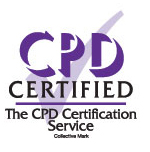
Pilot training in European

WHAT IS CPD?
CPD stands for Continuing Professional Development’. It is essentially a philosophy, which maintains that in order to be effective, learning should be organised and structured. The most common definition is:
‘A commitment to structured skills and knowledge enhancement for Personal or Professional competence’
CPD is a common requirement of individual membership with professional bodies and Institutes. Increasingly, employers also expect their staff to undertake regular CPD activities.
Undertaken over a period of time, CPD ensures that educational qualifications do not become obsolete, and allows for best practice and professional standards to be upheld.
CPD can be undertaken through a variety of learning activities including instructor led training courses, seminars and conferences, e:learning modules or structured reading.
CPD AND PROFESSIONAL INSTITUTES
There are approximately 470 institutes in the UK across all industry sectors, with a collective membership of circa 4 million professionals, and they all expect their members to undertake CPD.
For some institutes undertaking CPD is mandatory e.g. accountancy and law, and linked to a licence to practice, for others it’s obligatory. By ensuring that their members undertake CPD, the professional bodies seek to ensure that professional standards, legislative awareness and ethical practices are maintained.
CPD Schemes often run over the period of a year and the institutes generally provide online tools for their members to record and reflect on their CPD activities.
TYPICAL CPD SCHEMES AND RECORDING OF CPD (CPD points and hours)
Professional bodies and Institutes CPD schemes are either structured as ‘Input’ or ‘Output’ based.
‘Input’ based schemes list a precise number of CPD hours that individuals must achieve within a given time period. These schemes can also use different ‘currencies’ such as points, merits, units or credits, where an individual must accumulate the number required. These currencies are usually based on time i.e. 1 CPD point = 1 hour of learning.
‘Output’ based schemes are learner centred. They require individuals to set learning goals that align to professional competencies, or personal development objectives. These schemes also list different ways to achieve the learning goals e.g. training courses, seminars or e:learning, which enables an individual to complete their CPD through their preferred mode of learning.









